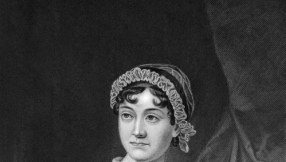
The Court of Appeal handed down its judgment yesterday in the case of AH, a 56-year-old lady in Addenbrooke's Hospital, Cambridge, who was described by the Court of Protection as "the most complex Covid patient in the world".
This was the court which in September ruled that AH's life-saving ventilation should be withdrawn.
Its decision has now been overturned by the Court of Appeal, on the grounds of procedural flaws. As a result, the case will now have to be heard afresh.
The Court of Protection was faced with an intensely difficult dilemma, as Mrs AH's suffering is being caused not only by her illness but by the treatment itself, which is "extremely painful" for her, as well as "medically futile ... protracting avoidable physical and emotional pain" (paragraphs 69ii, 76, 93, 108).
At the time of the earlier court hearing, AH was conscious enough to experience the suffering brought about by her treatment, but at the same time insufficiently conscious to be able to say clearly or consistently whether she wanted that treatment to continue (paragraph 75).
Rules governing treatment withdrawal
In UK law, a decision to withdraw medical treatment is equivalent to a decision not to provide that treatment in the first place. This point has been tirelessly emphasised by the courts, and was made again yesterday by the Court of Appeal (paragraph 37).
Patients with mental capacity can exercise their right to personal autonomy by refusing any treatment that is on offer.
But if someone lacks the capacity to do this, doctors must then make a decision on the person's behalf that is in their "best interests". This should involve consulting people close to the person, such as their family and friends, to try and ascertain their wishes and values - including their religious beliefs. Doctors should take account of any statements the person has made in the past about what they would wish for in their present situation.
So much is clear from the Mental Capacity Act 2005, its accompanying Code of Practice, clinical guidelines issued by the Royal College of Physicians, and the body of case law which has built up over the years, as medical advances present doctors and the courts with increasingly difficult decisions about treatment withdrawal.
In principle, these decisions made in a patient's best interests are quite different from euthanasia, according to both UK law, as explained in BMA Guidance (page 78), and the thinking of at least some Christian ethical traditions. The Mental Capacity Act specifically prohibits decisions which are motivated by a desire to cause death.
But clinicians and judges are confronted with a serious difficulty (explored in a previous article) where the patient hasn't made his or her wishes known beforehand with sufficient certainty - or indeed at all.
A decision still has to be made - one which could end up either inflicting suffering on an unconsenting patient, or terminating their life in a way they are powerless to oppose.
As the courts have repeatedly stressed - including in yesterday's judgment (paragraph 41) - there is a "strong presumption that it is in a person's best interests to stay alive".
Unfortunately, though, this does not translate into a presumption that treatment should not be withdrawn unless the person has expressed clear, unequivocal, directly relevant and up-to-date wishes to that effect.
In practice, an email years before saying "Get the pillow ready if I get that way!" or an off the cuff remark such as "if I ever get like that shoot me!" can lead to the courts (and no doubt doctors with less scrutiny) deciding to bring the life of a severely disabled person to an end.
What are AH's best interests?
AH had earlier asked for full escalation of treatment, but the Court of Protection found that escalation had already fully taken place (paragraph 95). Apart from this, there was no reliable and unambiguous evidence of this lady's wishes.
The Court of Protection had to weigh up the conflicting views of different family members: "The eldest daughter, S ... considers her mother's present pain to be intolerable and avoidable and unambiguously supports the medical consensus. She is particularly troubled by the fact that her mother is unable to communicate any discomfort, pain or frustration to the outside world ... [and] was astute in identifying that her mother's emotional pain is as present as her physical pain" (paragraph 83).
The judge also recognised that prolonging ventilation would be "consistent with [AH's] religious beliefs as expressed by her family", but concluded:
"Whilst I have identified AH's religious and cultural views as integral to her character and personality, I am not prepared to infer that it would follow that those views would cause her to oppose withdrawal of ventilation in these circumstances ... The assumption that AH would have taken a particular theological position on her treatment plan solely because she is a Muslim, even an observant one, is not an assumption I am prepared to make. To do so risks subverting rather than protecting AH's autonomy. I also note that there is a range of opinion, within this Muslim family, as to what is the right course to take" (paragraph 93).
The judge's bedside visit
In this case, the noteworthy feature which led directly to the earlier court's judgment being overturned was the judge's decision to visit AH in hospital, and the way he went about this.
The Court of Appeal judgment tells us that Mrs AH had shaken her head when one of her sons had asked her whether she wanted to end her life (paragraph 16).
During his subsequent visit the judge said to AH, who was clearly distressed, "It's very, very hard for you to tell me ... I think it may be that you want some peace ... It is not easy for you to communicate, but I think I am getting the message." He later reported that he had "got the clear impression she wanted some peace, she showed me that she did".
Did this mean that Mrs AH wanted to die, or just that she wanted the judge to go away?
Other bedside visits by judges – what is the protocol?
As the Court of Appeal points out, "some judges hearing cases involving life-sustaining treatment will often, if not frequently" visit the patient (paragraph 75).
One such early case in 1993 concerned a 15-year-old Jehovah's Witness, who was refusing a blood transfusion without which he would die. Being under the age of 16, he was not regarded as having full mental capacity.
The judge, Sir Alan Ward, delivered his judgment after visiting the patient in hospital: "He is, he says, prepared to die for his faith ... But I regret that I find it essential for his well-being to protect him from himself and his parents, and so I override his and his parents' decision."
This judgment served as part of the inspiration for Ian McEwan's novel The Children Act, adapted in 2017 for the screen.
The judge in this film, played by Emma Thompson, delivers a somewhat less judicially sensitive – but no doubt more dramatically impactful – verdict: "I find that A himself, his parents, and the elders of his Church have made a decision which is hostile to A's welfare. He must be protected from his religion and from himself."
Sir Alan himself made a cameo appearance in the movie as Lord Chief Justice.
But according to yesterday's Court of Appeal judgment, the protocol for visits of this kind may need to be tightened up.
The court held that "it is strongly arguable that the Judge was not equipped properly to gain any insight into AH's wishes and feelings from his visit. Her complex medical situation meant that he was not qualified to make any such assessment" (paragraph 71).
It also raised questions about procedural fairness, as the family were not informed in advance about the judge's visit, or its purpose, and so did not have any opportunity to make further submissions.
Yesterday's judgement confirms that, "There will need to be a rehearing ... as soon as possible" (paragraph 74).
Finally, the Court indicated that better guidance on such judicial visits must now be considered.
Mrs AH's life still hangs in the balance, but as a result of her case it is highly likely that bedside visits by judges will in future be subject to stricter rules.
This can only help to safeguard patients' rights, not only to personal autonomy but also to life itself.













